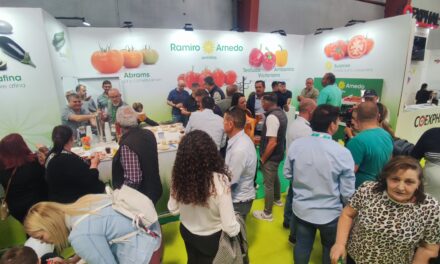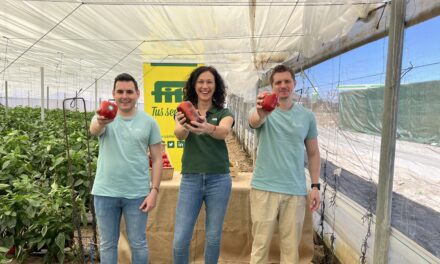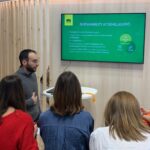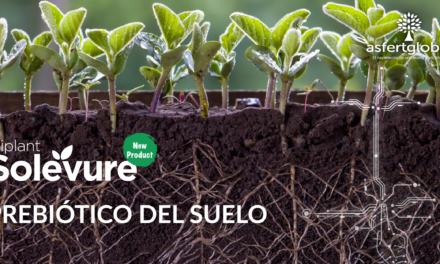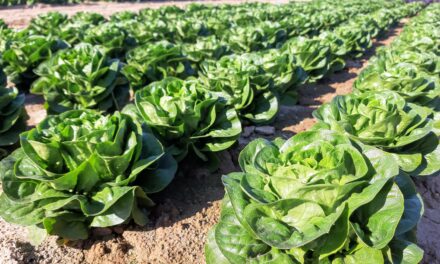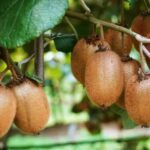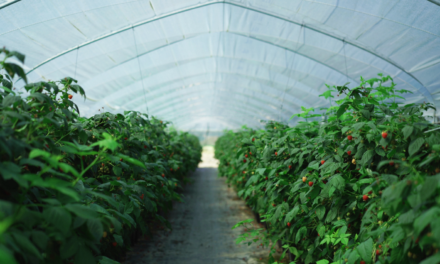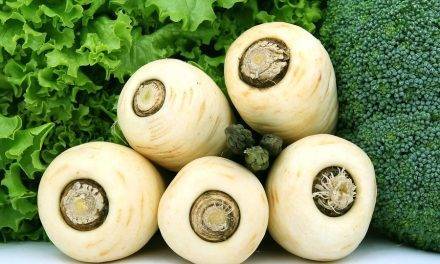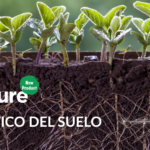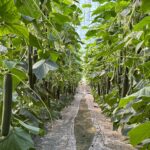
Computer recognizes diseases in grape, apple and carrot
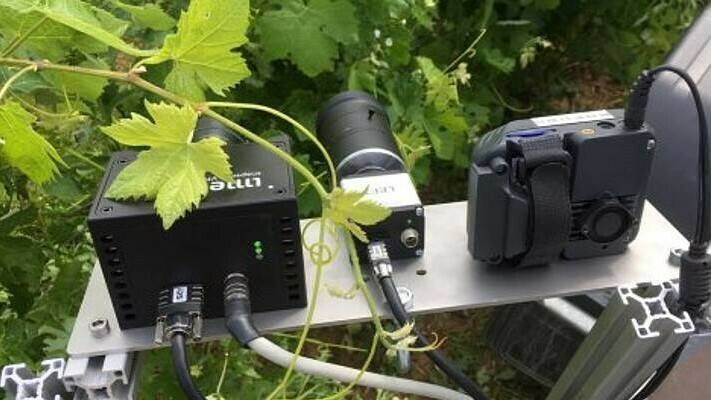
How can digital cameras and self-learning computers help to detect diseases in the cultivation of grapes, apples and carrots? Business Unit Horticulture of Wageningen University & Research is researching this within the European OPTIMA project. The aim of this project is fully automatic biological crop protection. Computer have to recognize diseases in grape, apple and carrot.
Within OPTIMA, WUR works together with partners from Belgium, Greece, France, Italy and Spain (Pulverizadores Fede). Each partner focuses on a different component, such as the spraying technique or the decision support system.
Researchers from WUR therefore look at detecting diseases at the earliest possible stage, preferably even a few hours after a disease occurs. The research focuses on fake mildew (in grape), scab (in apple) and Alternaria (in carrot). These three diseases cause serious damage in these crops.
Diseases are easier to detect if not only the standard RGB colors are looked at, but also specific parts of the spectrum in the visible and near infrared parts of the spectrum. Therefore three types of cameras are being investigated:
– an ‘ordinary’ digital camera and two spectral cameras:
– one with a wide range and wavelengths, and
– one with a more limited number of wavelengths in the visible and near infrared part of the spectrum.
Disadvantage of the spectral cameras: they are relatively expensive and slow. The research therefore focuses, among other things, on developing the ideal camera for practice.
The recorded images have been assessed by cultivation experts: they indicate on which parts of the photos there is an infection.
Based on these images and information, computers learn to recognize the diseases through deep neural networks, a part of the field of artificial intelligence, which is emerging enormously.
The disease detection therefore becomes self-learning.
The first results in which downy mildew is detected in grape plants with an accuracy of around 90% are promising.
OPTIMA is funded by the European Horizon 2020 program.
Source Hortibiz, quoting “information and photo courtesy of Wageningen”.

